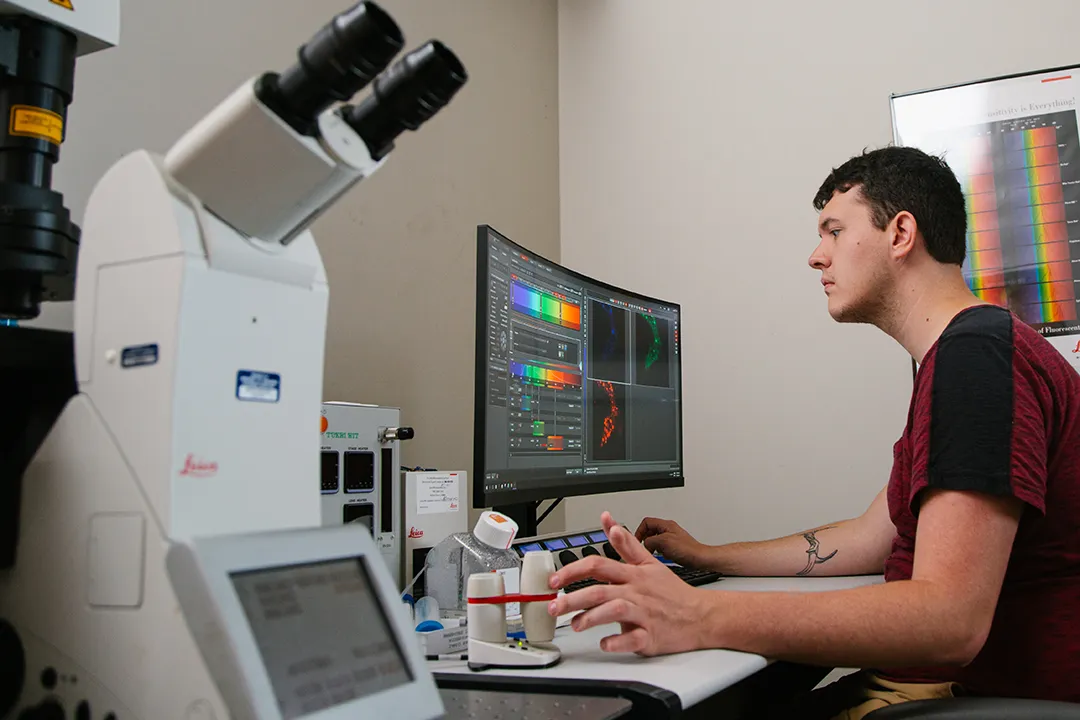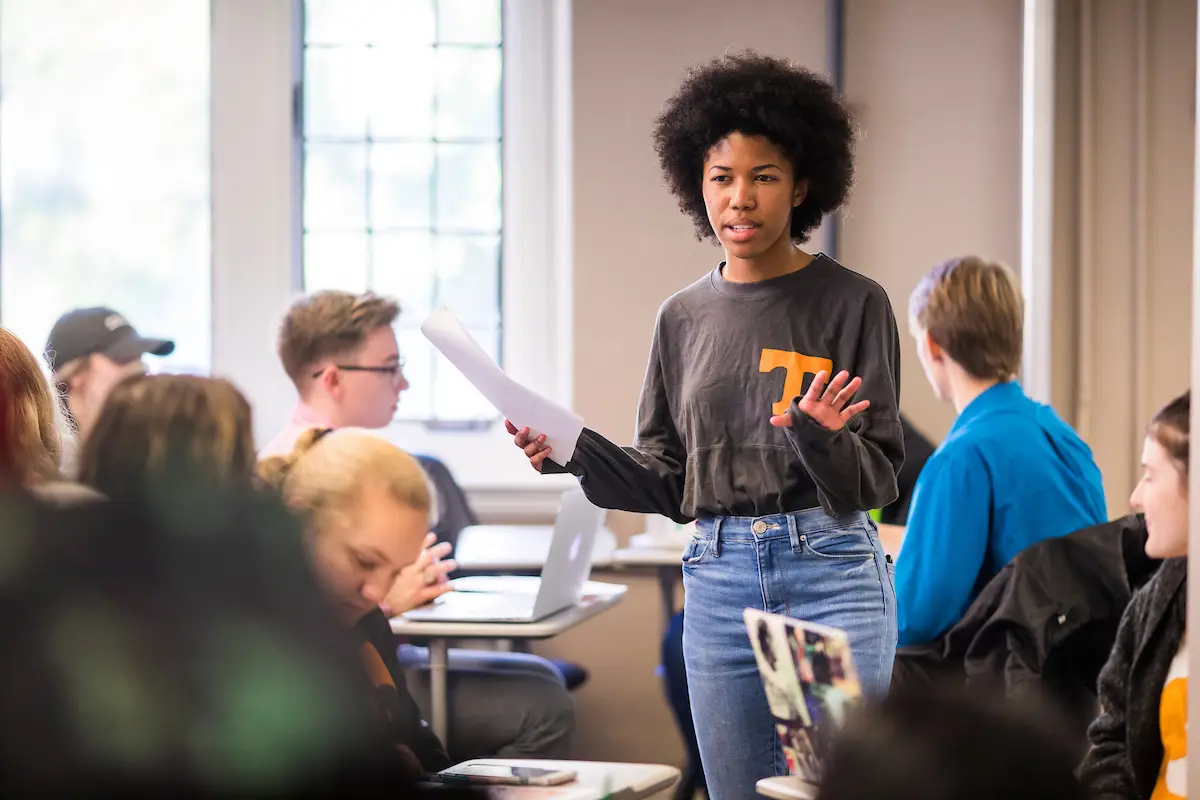New Program to Enhance Grad Student Career Readiness

Graduate student training program in sciences and math gets a boost from the National Science Foundation.
The National Science Foundation has awarded a grant of $399,209 to Division of Natural Sciences and Mathematics (NSM) faculty to develop and implement a holistic disciplinary training program for first-year graduate students that enhances research, teaching, and leadership skills, as aligned with UT’s Principles of Teaching Excellence and other recently published research-skills frameworks.
Ferlin McGaskey, associate vice provost for faculty affairs and executive director of UT’s Teaching and Learning Innovation, is principal investigator (PI) for the project, working with Professor Elisabeth Schussler, associate head of the Department of Ecology and Evolutionary Biology; Caroline Wienhold, faculty fellow for natural sciences and mathematics; and Professor Kate Jones, divisional dean for natural sciences and mathematics.
The team will engage faculty and graduate students throughout the NSM community on development of the training approach.
Graduate Students Contribute Important Teaching and Research

Support for graduate students in their teaching is an important element in helping build their career readiness, whether in academia or in other professional areas, and positively impacts undergraduate students taught by graduate instructors.
“Graduate students in our division are core to our teaching mission,” said Jones. “Almost every undergraduate on campus takes at least one class in the NSM division, and many of those classes have parts, such as laboratories or recitations, that are taught by graduate students.”
Research success is more than independent discovery. Graduate students often work directly with undergraduate researchers in research labs, guiding their early development as scientists as they simultaneously develop their own research expertise.
“Our project emphasizes that the skills to be successful in teaching students science, mentoring undergraduates in research, and conducting their own research in a collaborative scientific environment are often the same,” said Schussler.
Holistic Career Readiness
For academic year 2025–2026, the project team is working with graduate students and faculty from each NSM department to create a holistic disciplinary training program curriculum and delivery methods.
“Bringing graduate students together from different departments will broaden their perspectives about what it means to be a graduate teacher, a graduate researcher, and a scientist as the complete package,” said Jones. “By developing disciplinary professional skills that apply to all these aspects of their work, our graduate students will be more successful in their future careers.”
A guiding theme as the program develops is the idea that the skills needed to be successful in teaching, research, and leadership can be developed together.
“The ‘holistic’ idea is very intentional, as we want to push forward an approach that trains a graduate student as a whole person and develops all areas of career readiness,” said Wienhold.
A graduate student representative from each department will be part of the team that develops and monitors its implementation over the course of the project. They will start work this fall to identify the skills they think are most important to support teaching, research, and leadership. A graduate student representative will also sit on the Advisory Board to provide advice on aspects of the project.
“Next year we will deliver the program to all new graduate students in each department, with the support of a TLI Instructional Coach,” said Schussler. “Along the way, we will assess graduate student and departmental faculty perceptions of the program to make adjustments and determine their perceptions of the benefits.”
For information on additional ways to support graduate students in their professional development in teaching, research, and leadership, email the college at artscicomm@utk.edu
By Randall Brown